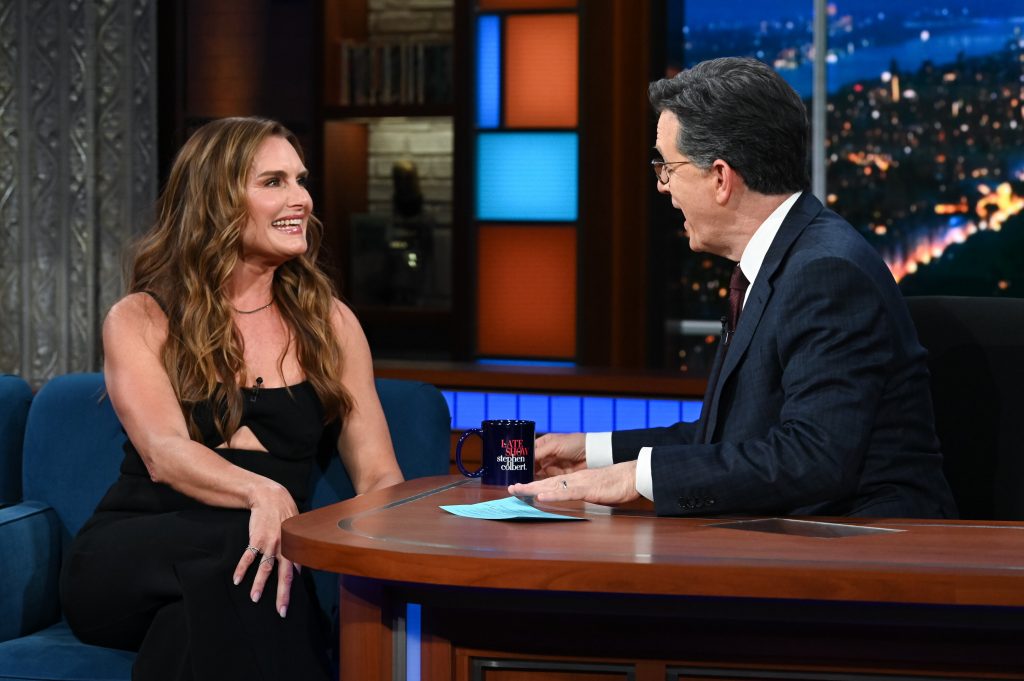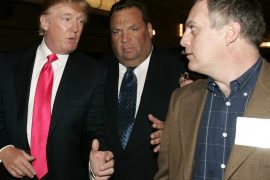The most frank section the new, two-part documentary Pretty Baby: Brooke Shields comes at the very end. That’s when Shields is sitting down to dinner with her husband, director Chris Henchy, and their two children. The teenage girls seem a bit horrified that their mom was just an 11-years-old girl when she played a child prostitute in “Pretty Baby.” “Would you let one of us do that?” they ask. It leads to a frank and illuminating discussion.
This comes after a few hours of standard celebrity bio fare from director Lana Wilson, who made the 2020 look at Taylor Swift, “Miss Americana.” The case is readily made, through clips with Oprah, Mike Douglas, Johnny Carson and Larry King, among others, that Brooks was one of the most famous celebrities of the ’80s. Her face launched a thousand magazines. Her early movies, shot as a teen, with “The Blue Lagoon” being perhaps the most cringe-worthy example, are well known if extremely problematic today. Shields was the beautiful innocent tossed into a Studio 54 culture. The point is made that she was sexualized so young it stilted her own sexual development.
The bad guy in the documentary is her mom Teri, an alcoholic who guided her career in a way that would have made Elvis’ gatekeeper, Col. Tom Parker seem enlightened and benign.
Wilson raises a lot of questions but leaves many half answered. Shields addresses her friendship with Michael Jackson, which seems to have been a little more than an adolescent crush between two rich and famous icons who were never able to grow up properly. Pretty Baby could have explored more by getting further insights from Shields’ friends and associates at the time, although actress Laura Linney does provide some perspective.
Most of the narrative comes from Shields directly. She talks about how much she enjoyed working on her NBC sitcom, Suddenly Susan, but regrets that the network leaned hard into the one-note premise: that this beauty was really a klumsy goof who kept tripping and stumbling on cue. My recollection, as a TV critic attending LA press tours during the four-season run of the series, is that Shields herself kept playing the klutz card in interviews.
The doc also loses big points from me for not even mentioning, let alone showing, the skewering she got at the hands of Catherine O’Hara and other SCTV players. Shields career blew up real good at the hands of Billy Sol Hurok (John Candy) and Big Jim (Joe Flaherty), not to mention the pasting she and her mom Teri (played by Rick Moranis!) took in the classic SCTV bit The Brooke Shields Show.
advertisement
The sketch came so close to the bone you can see the marrow. The only way around it is to get in front of it, and if Shields wanted to show she had a sense of humour, she would have made some reference to it in this doc.

To be fair, Shields has spent her life trying to get past her looks in order to be taken seriously. Over the course of the documentary, there are several legitimate crossroads where Shields has to overcome perceptions. Princeton? Guess they wanted to beautify the campus. A “Must See” series? Anybody could succeed hammocked between Friends and Seinfeld. Postpartum depression? Boo-hoo-hoo — poor little rich girl.
Shields was famously blindsided on the latter issue by none other than movie star Tom Cruise. The avowed Scientologist lambasted her on a network television morning show for taking medication to balance out her depression. We learn that he later apologized, in person, to Shields; she and her husband were later guests at the wedding of Cruise and Katie Holmes.
Shields’ tabloid life is all on display, including her brief marriage to hot-headed tennis brat Andre Agassi and her eventual termination of her mom as manager. We learn that she lost her virginity at 22 to future Superman Dean Cain and that she was later sexually assaulted by an unnamed movie producer.
So why does the two-part documentary feel one part too many? The happy ending, especially in that scene with her kids at the dinner table, is that she seems to have worked through a lifetime of compartmentalizing. Like Drew Barrymore, a friend and fellow child star who comments throughout the documentary, she survived growing up too fast. That somewhere along the way she didn’t blow up real good — quite an accomplishment.






